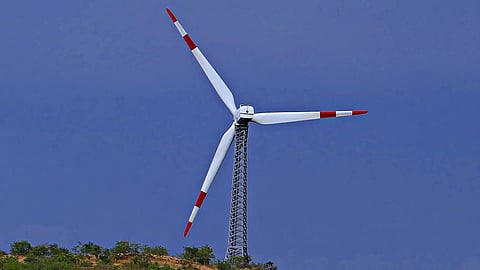Upcoming climate-friendly programmes and initiatives
Governments and companies in India and around the world are working fast to adapt to the challenges of climate change, introducing new schemes and plans to go green and build resilience against natural disasters. As the rollouts and announcements continue, here’s a collection of recent programmes:
What: Tamil Nadu government announces draft action plan on climate change
The Tamil Nadu state government has laid out its draft policy plan to tackle climate change challenges in the next decade—a total of 199 planned activities have been identified in seven sectors to be achieved by 2030. These sectors include sustainable agriculture, water resources, forest and biodiversity, coastal area management, strategic knowledge for climate change, enhanced energy efficiency, renewable energy and solar mission, and sustainable habitat. The government has also plotted prioritised interventions using a criteria of adaptation solutions and low carbon development linked to mitigation activities. The largest proposed budgetary allocations have gone to programmes dealing with sustainable habitat, solar energy and viable agricultural methods.
When: The draft policy is inviting suggestions from the public that can be sent to tndoe@tn.nic.in
What: Rajasthan unveils new renewable energy policies
The Government of Rajasthan had earlier unveiled two new policies, the Rajasthan Solar Energy Policy and the Rajasthan Wind and Hybrid Energy Policy, 2019, focusing on creating and promoting renewable energy infrastructures that make the most of the state’s natural resources. The wind and hybrid energy policy contains measures such as repowering of existing wind turbines that have completed at least 10 years in operation and productive use of wasteland for creation of wind energy hubs. While the solar energy policy, led by a target of 30 GW capacity by 2024-25, includes steps to promote rooftop solar projects and off-grid solar applications like water pumps and home lighting systems.
When: Until superseded by a new policy
What: India Inc sets up body to fight climate change
Some of India’s leading industrialists and corporate leaders, such as Ratan N. Tata, Anand Mahindra, Rohini Nilekani, Nadir Godrej, Aditi and Rishad Premji, Vidya Shah, and Hemendra Kothari, came together to launch the India Climate Collective (ICC), dedicated to strengthening communities and assisting those working on solutions for the climate crisis. The ICC has said it will soon host a convening of actors to battle air pollution across India, conduct a technical training on climate change for officials from the Government of Rajasthan, and launch research on how philanthropy can help build climate-resilient communities.
When: Ongoing
What: Amazon India to add 10,000 electric vehicles into its delivery fleet by 2025
Amazon India announced that it would introduce three-wheeler and four-wheeler EVs in an attempt to reduce its carbon footprint. In 2020, these vehicles will reportedly operate in over 20 cities of India, including Delhi NCR, Bangalore, Hyderabad, Ahmedabad, Pune and Coimbatore. The Indian vehicles are in addition to the 100,000 EVs Amazon said it would induct into its fleet globally by 2030.
When: By 2025
What: Microsoft commits to being carbon negative by 2030
In an ambitious plan, Microsoft announced that it was working towards becoming carbon negative by 2030 and that it would “remove from the environment all the carbon the company has emitted either directly or by electrical consumption since it was founded in 1975”. This will take place across the company’s direct emissions and supply and value chains. Microsoft also announced a new $1 billion climate innovation fund to accelerate the development of carbon reduction, capture, and removal technologies.
When: By 2030

